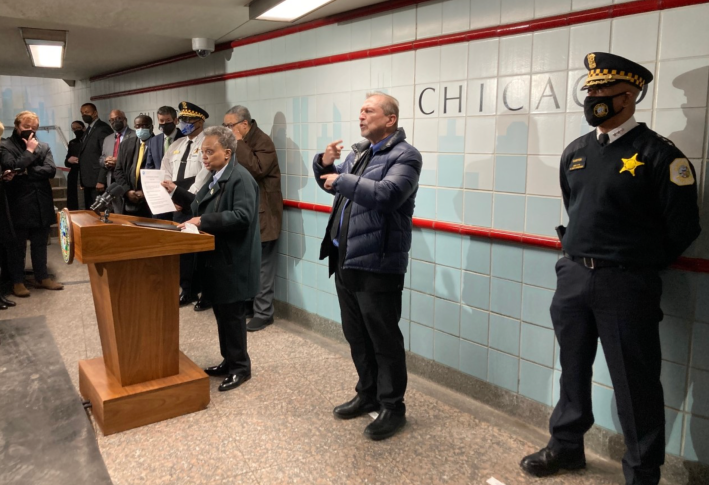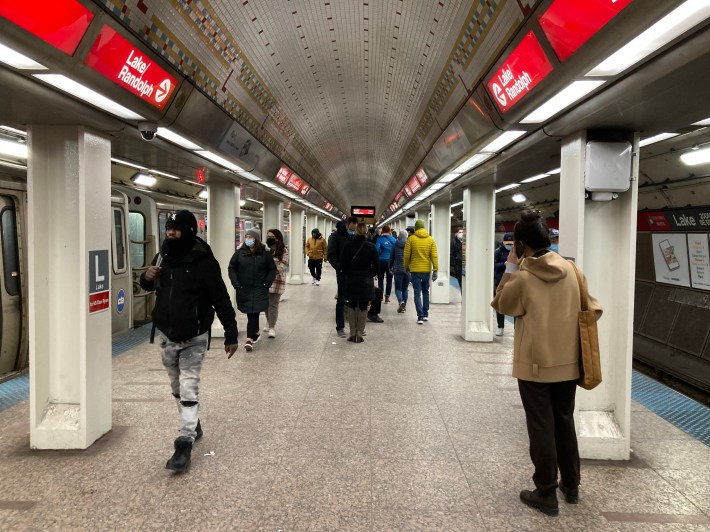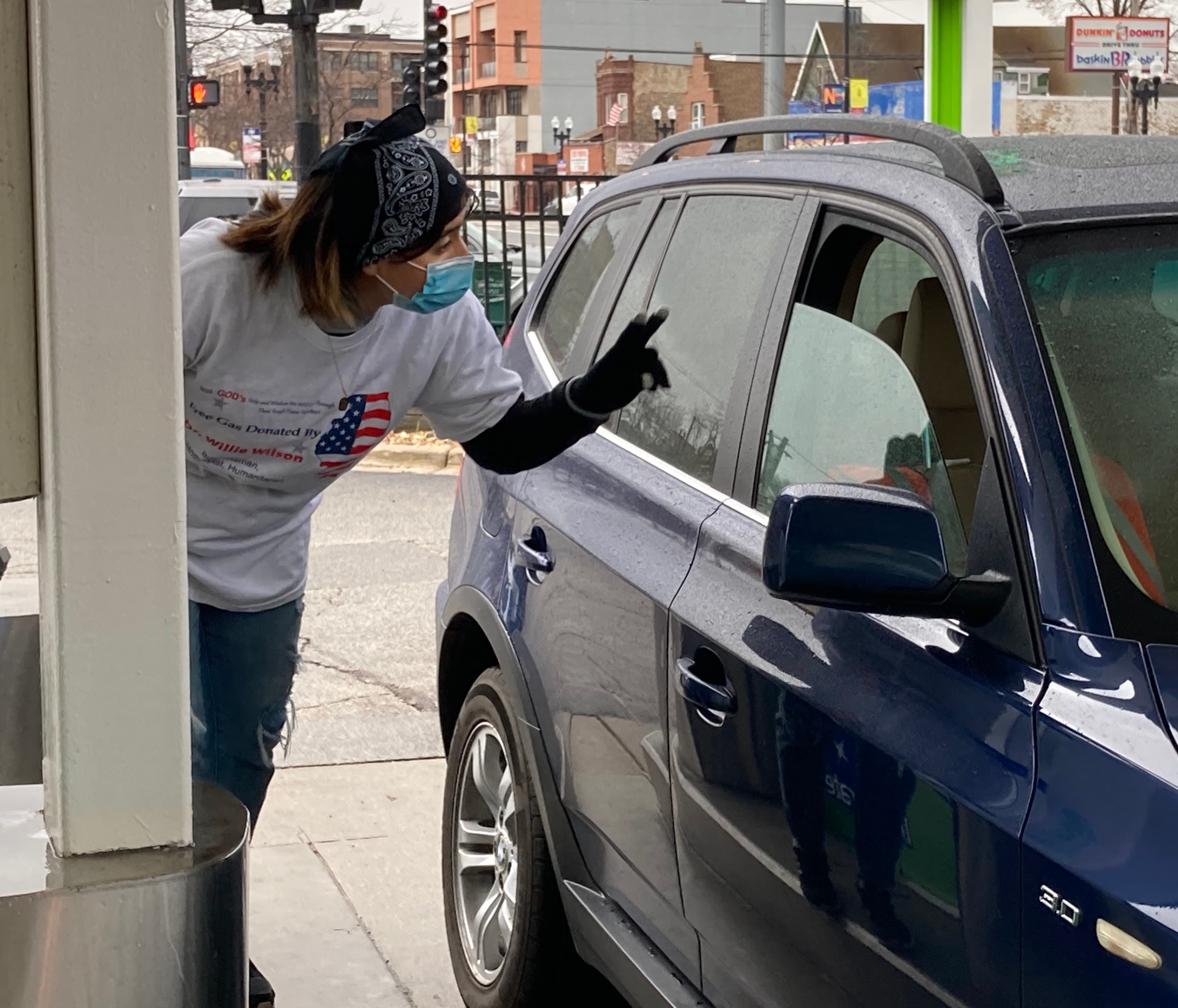What term should we use for politicians trying to win votes with regressive, ultimately pointless gas tax holidays and gas giveaways during a time of rising transportation costs? "Gas-lighting?" "Fuel-ishness"? "Gas-pandering"? "Petrol pampering"? "Gas-turbation"? Whatever you call it, it's definitely a thing here in Chicago and the rest of Illinois.
In late January Governor JB Pritzker proposed skipping our state's scheduled two-cents-per-gallon increase in the gas tax, indexed to inflation, for one year. This is a bad idea for several reasons. It's projected to cost the state $135 million. It has little or no benefit for Illinoisans who don't drive, many or whom are low-income, elderly, and/or have disabilities. Reinstating the gas-tax indexing next year could be challenging. And the move is only projected to save the average motorist $13 a year.
In the past two weeks we've seen millionaire and perennial political candidate Willie Wilson dole out $1.2 million in free gas in $50 increments all over Chicago and Cook County. that is to say, the fuel was free for motorists, although it cost taxpayers an untold sum in public resources like policing and traffic control that Wilson refused to pay for, while causing widespread gridlock and air pollution. But, hey, $1.2 million was a very affordable way for the entrepreneur to buy ubiquitous local and national news coverage for his probably third mayoral run,
Now Chicago mayor Lori Lightfoot is getting in on the act. Facing a tough reelection battle next year, today the mayor announced plans to temporarily repeal the 3-cents-a-gallon city gas tax increase that passed in 2021, until the end of this December, the Sun-Times reported. The current total Chicago tax on gasoline is 8 cents.
The $0.03 tax holiday is projected to cost our cash-strapped city $18 million out of the $64.9 million that's currently generated each year, used for paving and plowing streets, repairing bridges, and associated work hours, according to the Sun-Times.
Tell me you're worried about Willie Wilson running for mayor without telling me you're worried about Willie Wilson running for mayor. pic.twitter.com/ZG3WlMfoZq
— John Greenfield (@greenfieldjohn) March 25, 2022
Ald. Howard Brookins (21st), the chair of Chicago's transportation committee (known for being seriously injured on his bike by a squirrel after railing against "aggressive squirrels" at a City Council meeting), noted that Lightfoot's gas tax proposal will be viewed by many observers as political posturing, and the three-cents-a-gallon discount isn't going to save motorists much money. "If it was me, I would probably not do it to not feed into the cynicism of the public that you’re just doing something as a political stunt,” he told the Sun-Times.
"The practical reality is we are a car city and people have to drive to get to work, to get to school to get to church, go to the groceries and we've got to figure out a way that we can do our part to really provide some relief," Lightfoot said by way of justifying the tax holiday, according to an ABC Chicago report.

In reality, Chicago is not a "car city" but a multimodal one where almost 1/3 of households don't own cars. Again gas holidays and giveaways do little or nothing for those who can't afford to drive or are physically unable to do so. Meanwhile, we have the ability to create great conditions for transit, walking, and biking so that residents don't have to spend so much money on driving.
Obviously, many Chicagoans who can afford cars truly believe they have no choice but to use them for most or all of their trips. That's particularly true of people in Black and Latino communities on Chicago's South and West sides, where issues like sub-par transit access, retail deserts, and street crime can make driving seem like a necessity, rather than a choice.
On the other hand, people all over the city and region are taking plenty of car trips that would be practical and fairly easy to do without burning gasoline. I'm talking about things like driving to destinations a couple blocks away instead of walking, or choosing to take a car to your downtown job when the CTA or Metra is a relatively convenient option, simply because you have cheap or free parking at your workplace. Many of the folks who are currently complaining about high gas prices are making these dubious decisions, often driving gas-guzzling (and potentially deadly) monster SUVs and pickups while doing so.
Why has there basically been no discussion from local leaders about the potential for residents to save money by eliminating unnecessary car trips, carpooling, and walking or taking when possible, let along biking? It probably has something to do with the fact that former U.S. president Jimmy Carter lost reelection after suggesting that folks turn down their thermostats and wear sweaters during the 1970s oil crisis. Politicians know that Americans don't like being told to eat their vegetables.
Whitehead noted that instead of lowering the cost of driving, Chicago and Illinois could make sustainable modes safer and more affordable, convenient, and appealing. He pointed to New Zealand's recent announcement that all transit fares would be halved in response to rising fuel costs. He suggested using COVID relief funds to lower the cost of CTA, Metra, and Pace trips and boost ridership, and he also floating the idea of half-price Divvy bike-share trips.

We should also be dramatically picking up the pace of building pedestrian safety infrastructure, and bus and bike lanes, given that Chicago, the state of Illinois, and the federal government have all passed infrastructure packages in recent years, Whitehead noted. To make that happen, we've got to stop politicians from simply repaving roads without making safety improvements, and diverting billions in infrastructure money towards wasteful highway expansion plans. He noted that sustainable transportation investments should be focused in the areas that need them the most, particularly lower-income areas and Black and Latino communities.
"An alternative plan focused on helping Chicagoans drive less would save families money in the short term and put us on a path towards a more sustainable transportation future," Whitehead wrote. "Governor Pritzker, Mayor Lightfoot, and our transportation agencies need to move on from their low-impact, regressive gas tax proposals and instead focus on making transformational changes to our transportation system that would make residents’ lives better in the short- and long-term."
Politicians, are you listening? Let's see you take bold actions to make walking, transit, and biking practical and attractive alternatives to paying more at the pump, instead of the current "Gas-bagging."




